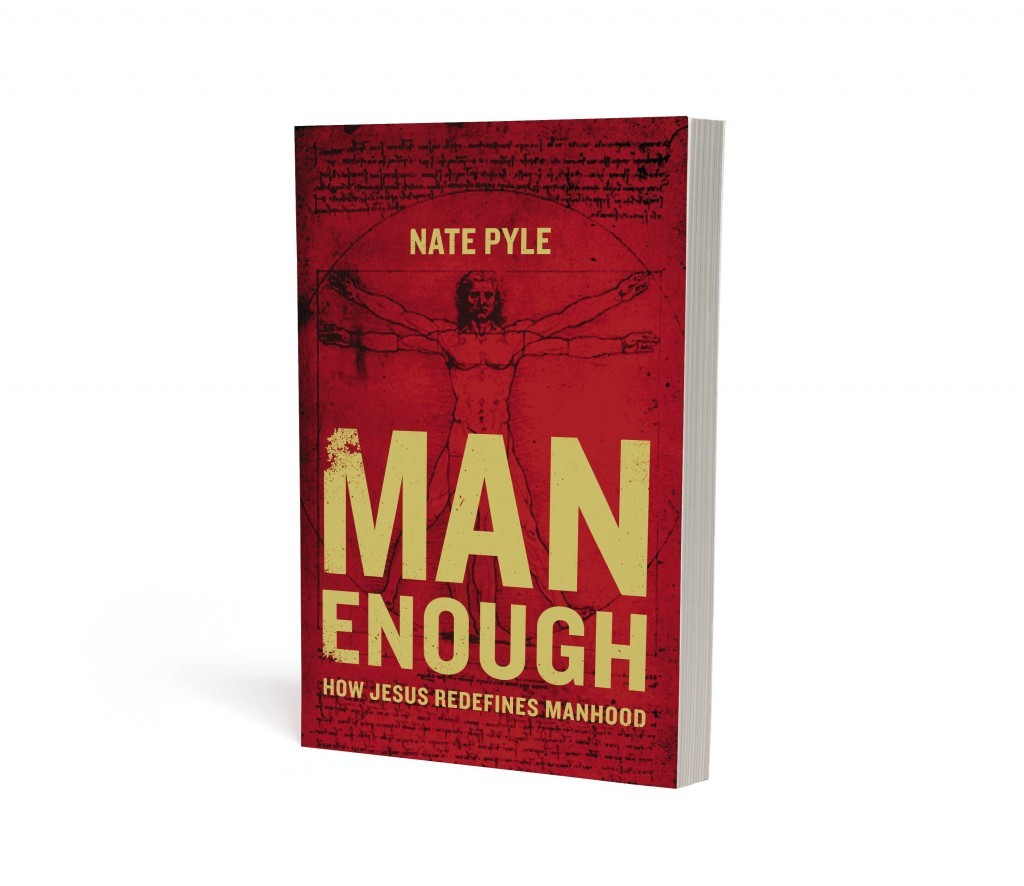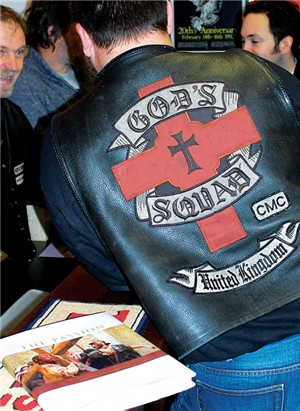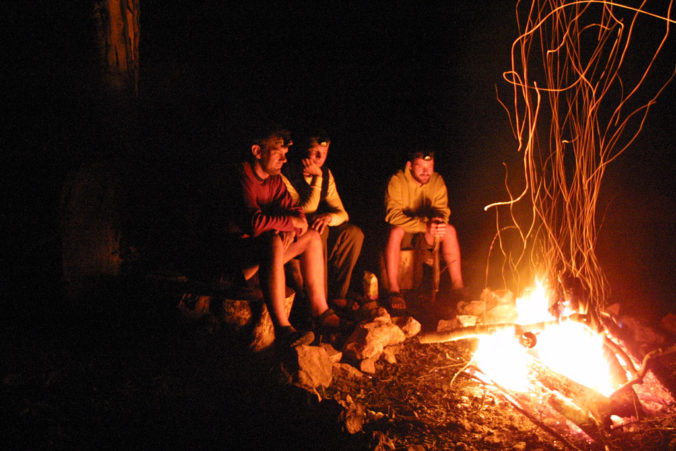SIGHT-SEEING: THE STRENGTH OF VULNERABILITY
In 2010, researcher and speaker, Brene Brown, gave a TED talk on vulnerability which quickly went viral. It has now been viewed more than 33 million times. Why did Brown’s talk have such an explosive impact? The simple answer is that she touched something deep inside people that spoke to what they were feeling but somehow couldn’t express, something we all intuitively knew.
Category: Men
Why do we run from love? Why do we run from what’s good for us?
In this life of contradictions that we are, sometimes we embrace love with all the courage in the world, and other times we run from it out of sheer terror and fear. I often tend towards the latter.
Deep down we don’t believe that we’re really worth loving. So we sabotage something that is really good, or we isolate ourselves when we’ve been invited to an event with good people who love us.
There is a profound little scene in the gospels where Peter has just caught a huge catch of fish after Jesus told him to put his net over the other side of the boat. Peter is not gobsmacked at the unbelievable amount of fish he has just caught; he is gobsmacked by the unbelievable generosity that Jesus showed him. He is so gobsmacked he can’t handle it. He tells Jesus to go away “for I am a sinful man.” Peter expresses the deep down belief of most of us, that we don’t deserve such outrageous love, especially when we haven’t done anything to earn it. But Jesus believes in Peter, knowing that Peter will stuff up (as he does later on, big time). Jesus says, no, I want you, with all your flaws, all your faults. Because I love you. In fact, you’re going to be the leader of this movement when I go. And Peter does, knowing his own weaknesses, but trusting in the love he has been given.
I heard a preacher say once that when we get to the end of our lives, one of the biggest things we are going to say is why didn’t we take more risks? We spend our lives turning ourselves away from love, keeping ourselves safe from hurt. Love is always risky, by its very nature it is open to hurt because it might not be returned. But as Mother Teresa said, love anyway.
C.S. Lewis said that we can lock ourselves away in our cocoon, safe from the world. In that cocoon we won’t be hurt, we won’t need to take any risks, and we can be sure that we will be safe. But in that cocoon you will slowly die, you will slowly rot away from who you really are, because you won’t know the freedom of living. Yes, when you love you will be hurt, but you will be alive. A heart that hurts is a heart that beats, sing U2, the band that more than any other has written the soundtrack of my life.
We run from love and find ourselves running toward the hell of our own loneliness. I do it so often I don’t even realise it. I don’t want to get hurt, I can’t bear the loss of rejection. But when I remember that love is the only way forward, and that I don’t need to prove my worth to anyone because I am already loved, then I can love others and be ok when that love is not returned. That’s not to say it doesn’t hurt; it does and I hate it. But I can cope.
Why do I walk away? Why do I run from love? There is something in me that doesn’t want to take that risk. But when you do, when you move forward in courage, you will be ok even if that love is not returned, or if it is thrown back in your face.
We love because God first loved us. That’s the incredibly fortunate position we are in. We don’t have to make the first move. It’s already been done for us. You have nothing to prove. We already have what we crave; we just need to accept it. And when we reject it, we can get up again because that love never leaves us. Nothing can take it away.
Martin Luther King said the moral arc of the universe is long, but it bends toward justice. It also bends towards hope and love.
I refuse to believe we are a meaningless conglomeration of atoms in the cosmic dark. I believe there is purpose in this universe, despite the hatred, despite the lies, despite the despair. Despite my brokenness, despite my lies, despite my judgmentalism, my fear, my resentments and my demand for affirmation.
God help me to run into the arms of your love, and to be not afraid to be held, to be weak, not afraid to give up my illusion of control. Help me to not run from love, but to surrender.
Before people like me judge Donald Trump for his bombastic statements, let’s remember that he is a reflection of the adolescent culture we all live in.
Here is an article of mine on the Trump phenomenon, published here in Ethos…
Donald Trump as a reflection of an adolescent culture
Monday, 4 April 2016 | Nils von Kalm I find myself fascinated by the Donald Trump phenomenon. Why is it that a man who blatantly lies, advocates war crimes, promotes xenophobia and can’t decide whether or not to condemn the support of a KKK leader, is set to become the Republican nominee for the leadership of the most powerful nation in the world?
 The last twenty years or so have seen an encouraging increase in the number of books being written focusing on what it means to be an authentic male in our culture. Ever since Steve Bidduph wrote his epic Manhood in the mid-1990s, the growth in the men’s movement has seen more men work towards becoming more emotionally centred and available to their families and other loved ones.
The last twenty years or so have seen an encouraging increase in the number of books being written focusing on what it means to be an authentic male in our culture. Ever since Steve Bidduph wrote his epic Manhood in the mid-1990s, the growth in the men’s movement has seen more men work towards becoming more emotionally centred and available to their families and other loved ones.
This life-giving trend towards becoming better men has been equally seen in Christian circles. Richard Rohr, Parker Palmer, John Eldredge and others have written and taught much on what a real man looks like in a culture that pressures men to be someone they are not.
Into this mix comes probably the best book I have read on being a man among men. Nate Pyle’s Man Enough: How Jesus Redefines Manhood is a breath of fresh air in the increasing volume of literature on men and their issues.
It is wonderful to see an author be so open and vulnerable about his own vulnerability about not feeling like a man for such a long period of his life. Pyle’s experience will resonate with many men in the Church, including myself. It is only in recent years that I have done a lot of work on what a genuine man looks like. Reading Pyle’s book has allowed me to breathe a huge sigh of relief that you don’t have to be a “warrior man” – as some Christian authors emphasise, to be a godly man.
 I turned 45 this year, so I guess it’s about time I had a midlife crisis. Mine has been partly self-inflicted and partly forced upon me. I suppose that’s they way they happen though. No one really chooses to go through a crisis of identity.
I turned 45 this year, so I guess it’s about time I had a midlife crisis. Mine has been partly self-inflicted and partly forced upon me. I suppose that’s they way they happen though. No one really chooses to go through a crisis of identity.
And identity is what crises of these types are all about. Having a couple of major traumas in my life in the last 12 months has led me to look at just where my identity has lain. It turns out that, to a large extent, I have been building my house on sand as well as on the rock of the love and security of God.
That is not to criticise where my heart has been (for the most part) in the years leading up to these traumas. It’s more that God has been calling me to a deeper level of commitment. As they say, be careful what you pray for, because there’s a good chance it will be answered! And, thankfully, God is not “nice” as we Western Christians often are when we try to deal with things. This is no Sunday School “gentle Jesus, meek and mild, tiptoeing through the meadows.” This is a God who takes the bull by its horns.
If you surrender yourself to this God, you can guarantee that surgery will be performed on your soul. And there are no anaesthetics when God is at the operating table. That doesn’t mean that God is mean; quite the contrary. This is surgery that gets to the root causes and cuts out the cancer for it never to return. This is love at its best, polishing the rough edges of the diamond so it resembles the exquisite beauty that the Master Surgeon originally intended for it. Continue reading
 There is something uniquely special about grown men being vulnerable with each other in a group. I am fortunate to be in a group where this is not an uncommon occurrence. When you see a man who, if you only saw his physical appearance would probably intimidate you, start to be so honest about his brokenness and about how much he appreciates being in a place where it’s ok to be broken, it touches something deep within you. It’s one of those almost indescribable moments when you are reminded of what really matters, of what is really important in life. It touches something deeper, something that the superficialities of our life never can. It is a moment when you realise that love is in the house, and it isn’t the warm fuzzy feeling that is probably best described as being ‘nice.’ The word that probably best describes what I am talking about is ‘real.’ It is men being real men.
There is something uniquely special about grown men being vulnerable with each other in a group. I am fortunate to be in a group where this is not an uncommon occurrence. When you see a man who, if you only saw his physical appearance would probably intimidate you, start to be so honest about his brokenness and about how much he appreciates being in a place where it’s ok to be broken, it touches something deep within you. It’s one of those almost indescribable moments when you are reminded of what really matters, of what is really important in life. It touches something deeper, something that the superficialities of our life never can. It is a moment when you realise that love is in the house, and it isn’t the warm fuzzy feeling that is probably best described as being ‘nice.’ The word that probably best describes what I am talking about is ‘real.’ It is men being real men.
I can imagine that this is what it would have been like being around Jesus. He always touched something deeper. He opened himself up to people, and people in turn opened themselves up to him. Jesus can never be accused of being a nice young man who made you feel warm and fuzzy inside. People like that didn’t get themselves crucified by the Romans. No, Jesus was a real man. The people who followed him had their deepest needs satisfied; they found rivers of living water welling up within them. Hardened, sea-worn fishermen, along with unscrupulous businessmen, were transformed into the most caring and courageous of men. At his crucifixion it was a tough, trained-to-kill Roman soldier who was moved to confess that, in effect, this man was the way men are supposed to be. Jesus’ manhood is also shown in so many other ways. His respect for women, his courage in taking on the sin and pain of others, and his being unafraid to express his emotions in the appropriate way.
 If there were no consequences whatsoever for any destructive behaviour you engaged in, would you want to engage in it? Someone asked me that question once, and its profundity has caused me to think long and hard. If there were no consequences for cheating on my wife, for stealing what wasn’t mine, for taking credit when I didn’t deserve it, would I do it?
If there were no consequences whatsoever for any destructive behaviour you engaged in, would you want to engage in it? Someone asked me that question once, and its profundity has caused me to think long and hard. If there were no consequences for cheating on my wife, for stealing what wasn’t mine, for taking credit when I didn’t deserve it, would I do it?
The issue here is, where is my heart at? How captive am I to that which enslaves me? Many years ago Gil Cann said in a sermon that when we think of our inner life, the heart of the matter is the matter of the heart. At the end of the day, what we all need is a heart transformation. As U2 sang even more years ago, “a new heart is what I need. Oh God, make it bleed!”
Where is my heart at? Do I want what is right simply because it is right? With God’s help, yes I do. But as Alexander Solzhenitsyn said, there is a line that divides the good and evil in every human heart. In our heart of hearts there is a desire to do good which sits alongside a desire to get whatever we can for ourselves. A heart that is being redeemed by grace is one which wants to become more like Christ, that just wants to do the right thing. It is a heart that is sick of its own selfishness and deception, a heart that confesses it is in need of grace, a heart that cries out for renewal.
The human heart needs transformation, and it can only be done by the Holy Spirit. Social justice can’t do it, simply reading the Bible can’t do it, and listening to your favourite preacher or reading your favourite Christian books won’t do it. Only a heart open to the conviction of the Holy Spirit of God is one that will change.
Part of the way the world is set up is that there are consequences for our actions. There are good consequences or there are destructive consequences. We reap what we sow. It cannot be any other way. There are some things we just need to accept in life, and this is one of them.
But not only is this the way life works, it is the wonderful truth of the Christian message. There are consequences that go beyond what we experience in this life, but at the same time those consequences are utterly dependent on our actions in this life. The kingdom of God has broken into history and will one day be fully consummated. Things will one day be finally put to rights. There will be a day when the first will be last and the last will be first, when those who constantly suffer now because of injustice will at last get to see justice, when those who are downtrodden will be downtrodden no more. All the suffering that goes on in the world today is not meaningless; it is in fact redemptive. It will be used for good and it drives us toward hope, the sure hope that one day everything will be put to rights and suffering will be no more.
So, in one sense, the question of whether or not my behaviour would change if there were no consequences is a moot one. The fact is there are consequences and we can’t do anything to avoid the fact. It is a bit like asking what life would be like if there were no gravity on the earth. Our existence just isn’t like that.
Yet on the other hand the question is highly relevant, because it is a question that quite literally speaks to our ultimate motivations for doing the things we do in life. It is a question that asks where our hearts are at. Are we altruistic because it makes us look good and holy in front of our Christian brothers and sisters? Or are we altruistic because we really want to glorify God and see his kingdom of love and transformation come on earth as it is in heaven? Truth be told, we spend most of our lives hovering between both. I know I do. As I continue on this journey of life though, I am also more convinced that living a life daily surrendered to the God of Jesus Christ is the only way to find the sense of home that our restless hearts yearn for.
When we think of the secret thoughts that we have, or even the secret actions that we might engage in, what do we think of the consequences? What do you do with those secret thoughts you have that you are too ashamed to admit? For us men it is said that all of us are faced with the temptation at some point in our lives to run away from everything. Women may have similar dark thoughts. The problem is not so much that we have them, but how we deal with them. This is where it is crucial to have a person or people in our lives with whom we can share our darkest thoughts without shame, with the knowledge that we will still be accepted for who we are, and to know that such thoughts and desires can be redeemed.
My heart needs redeeming every day. It needs desperately to be brought in line with the heart of God. I am sometimes tempted to live like there are no consequences to my actions. But when I am deceived by such thoughts, it is then that I need to be reminded of the transforming love of God in Jesus to change me from the inside out, to create in me a clean heart and renew within me a right spirit. God help me to live such a surrendered life.
 I went camping on the weekend with some other blokes who are part of a men’s group I am in. Part of our time included a couple of hours alone on Sunday morning, out in nature, just taking it in, not thinking too much, not analysing it, but just being part of it.
I went camping on the weekend with some other blokes who are part of a men’s group I am in. Part of our time included a couple of hours alone on Sunday morning, out in nature, just taking it in, not thinking too much, not analysing it, but just being part of it.
I begin by walking along a track along a river. As the track winds closer to the river and then further from it, I find myself wanting to be drawn to the fast and gently flowing water, so clean and clear. So I find a little clearing and sit down by the river, somewhat mesmerised by what I can only call the gentle rush of the streams of life-giving water flowing past me.
As I sit down, a cockatoo flies overhead, its screech piercing the silence. Sitting there amongst the wildness out in nature, with the ferns and trees standing in the stillness all around me, I feel like I am intruding on their territory. But then I realise I am not intruding, for I too am part of nature. I am out here too, just observing. I belong here too.
I am reminded of what Bill Plotkin says about nature, that it is without self-consciousness. As he puts it, it is just there, without any apparent wish to be otherwise, without even a glimmer of identity crisis. As I sit there I realise that the birds flying overhead, the ferns growing all around me, the bush, the scrub, would all be here anyway if humans had never existed. It doesn’t need us. It makes me respect it more. It doesn’t fight back; it is vulnerable, helpless, open to abuse, and impossible to control. I realise that this is a great definition of love: vulnerable, open to abuse, yet still giving unconditionally.
As I sit there, a small fern is right next to me, touching me. One of the light branches is actually resting on my arm, like it is reaching out to me, without fear and despite its helplessness, almost like it is reassuring me. This was the same fern that I was fleetingly tempted to rip out of the ground as I was about to sit there by the river so I could get a better view. Such is my selfishness when I am disconnected. I was glad I didn’t act out my fleeting murderous intent.
To some this may sound like some New Age claptrap. To the contrary, God’s love is revealed in nature. I am reminded that Jesus told his hearers to consider the lilies, that they don’t worry about how they look (Luke 12:27). It is good to see nature as Jesus sees it.
After a while of sitting by the river, I get up, leave it and walk further along the trail. As I walk through this wild land that the Black Saturday bush fires had swept through just two years before, I imagine the fires racing through here, taking all before them, leaving nothing in their wake. Total destruction. But then I wonder: purely in terms of nature, is it destruction or is it part of the renewal cycle of life?
As I walk on I see hoofprints in the dirt. They remind me of another wonderful side of nature: the contrasting gentleness and yet wildness of a horse. Then I look around me, seeing green fields in the distance, peaceful and beautiful. Out here, away from the distractions of everyday life, I am aware of my responses. I realise how fragile nature is and I see that looking after it is something to be done for nature’s sake alone and not just for its effect on humans. Nature has value in its own right. After all, God said it was good. Nature reflects the glory of God.
I walk further, up a steep hill, my heart pounding each time I stop. After a minute I walk off the track into the bush and notice the quieter sounds around me, not just the bird noises overhead, but the gentler sounds of what may be little creatures in the scrub. I walk back down the hill and notice a green shoot, fragile and tiny, growing on its own out of the dirt. I am struck not simply by what this might symbolize, but what it is, nature pushing through where it is not expected.
I walk on and I notice an ant on the ground which has stopped moving, maybe when I stepped near it. I bend down to observe it, gently prodding it to see if it is still alive. It moves slightly, then stops again, so I prod it again, and it moves slightly again, and starts walking, over the bumps and grooves in the dirt made by my boots. I notice that it doesn’t need to walk straight in the grooves, to be ordered like I think I have to be. It just walks wherever it sees is best for its purpose.
This was my morning with nature. It is something I think everyone of us should do with some regularity. We spend too much of our time inside these days, trapped in front of our screens, slaves to technology. And the more we are enslaved, the more we miss the goodness of the vast, wild awesomeness of the pure, natural world that God created simply because it is God’s nature to create. We do well to immerse ourselves in it.
 Recent daily emails from Richard Rohr have been looking at how men change. This one spoke right to my heart:
Recent daily emails from Richard Rohr have been looking at how men change. This one spoke right to my heart:
We men try not to be “touched” or changed by things. “Don’t let anything go too deep, neither love nor pain…. Keep cool!” is the message we hear. Yet we really don’t survive our many kinds of wars. They now say that the long-term effects of any violent war lasts for four generations as post-traumatic stress in various forms. This would mean that we are still suffering from the Civil War, the Great War, the Second World War, and the wars every ten years since. Is it any wonder we have so many neurotic and unhappy people? Human beings are not meant to kill one another.
Boys are taught to win. We men can’t admit to anything that can’t be configured as winning. We have to pretend it’s not true and make another group or individual the loser, which for some strange reason is supposed to make us the winners. It becomes so clear to me as I grow older that people who change, and keep changing, are the only people who grow up. And we grow up when we allow events to touch us, influence us, and quite simply move us beyond our fortified home base. – Adapted from ‘How Men Change: A Thin Time‘
God help me to be a person who changes.




